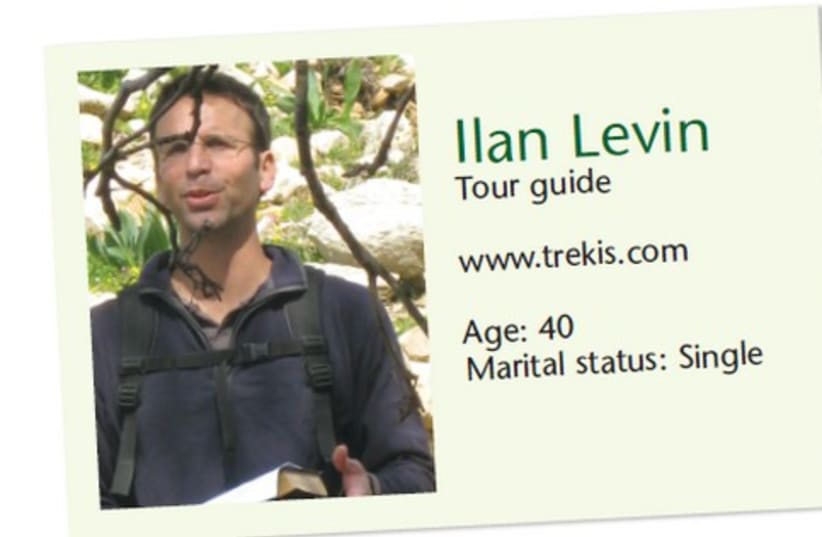Worst job? Working for a carpet cleaning company that was dedicated to ripping people off. After the second day, I said “That’s it. I won’t do this.”What’s your most popular hike? Probably the full moon hike in the Judean Desert. It’s funny. When I first started leading my own hikes, I sometimes had only one person come out. But we went – I’d never cancel. Now 50 people will sign up for my hikes, but since I can only take 40, there are waiting lists.What’s your personal favorite? I love taking people to several of the 100 or more ancient synagogues in Galilee. They were built 1,500 years ago, but if I stepped back in time, I could communicate with the people then, I’d understand what they were talking about. I could read the Bible or prayer book with them. I love showing those places to people.
High moment? Every time a tour ends and people tell me I showed them an Israel they didn’t know existed. Everything they knew before probably came from newscasts, and unfortunately Israel gets a lot of bad press. When they see how different Israel really is, that’s a very positive thing.Low moment? Last spring, I was out with a group hiking up the Gilboa, and we came across people who were desecrating nature with jeeps – ripping up the ground, bumping into trees, just destroying whatever they could. It was very disturbing.Has anyone asked to go to a place you wouldn’t take them? It happens. One couple wanted to go to the Cave of the Patriarchs. I couldn’t do that – insurance was a major issue, and I don’t have an armored vehicle so I arranged for someone else who had those things to take them. A big part of being a tour guide is being responsible for people’s safety. I take that seriously.Is anything you do controversial? I do my best to stay out of politics, but there are times when you have to be somewhat subjective. If someone asks, “What’s that fence over there for?” I have to answer, and my answer may not find favor with some members of the group.Have you ever been afraid? No. I do a lot of long hikes and treks on my own, but I’ve never been afraid.
Perks? I start some tours by explaining that close to half the world’s population is affected by what goes on in this country. There are 1.5 billion Muslims, 1.5 billion Christians, about 12 million Jews, but regardless, the beginning of everyone’s religion, the roots of their moral traditions, are in Israel. Once they start to realize that, people begin to see things differently – that’s very satisfying.What’s your dream? In many ways, I’ve found my vocation, being a moreh derech, which is what I’m called in Hebrew. A moreh derech is someone who points or shows the way, which isn’t the same as the English “tour guide.” That’s what I want to do: to show a different way, I don’t take people to a place and just tell them how tall this thing is, or when it was built. I want to give them the story – which is pointing the way. My dream is to bring that idea to the world, to show them my Israel.
